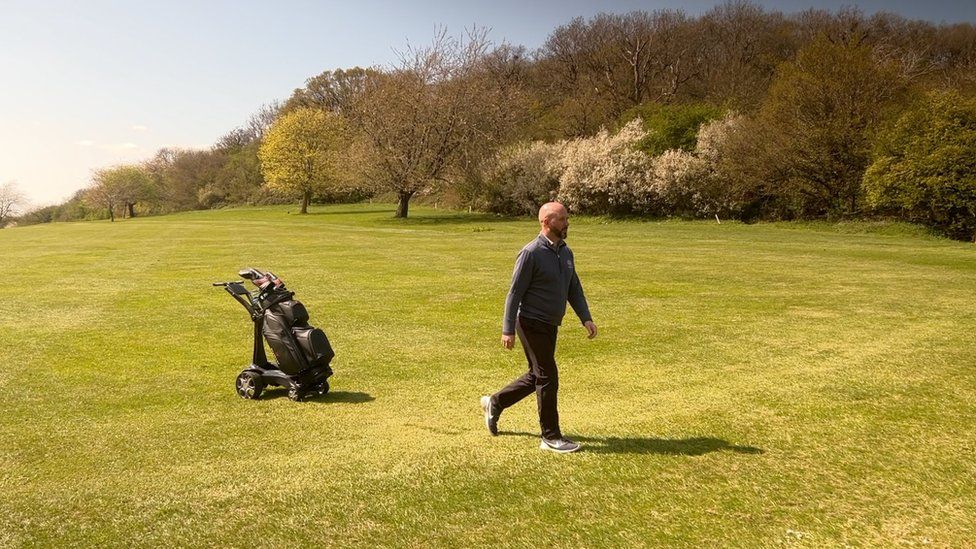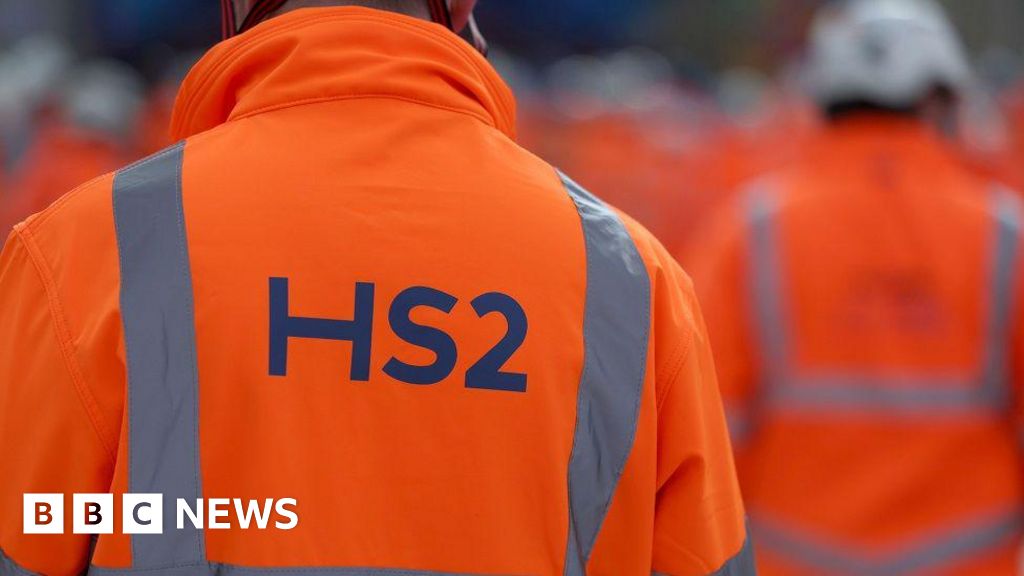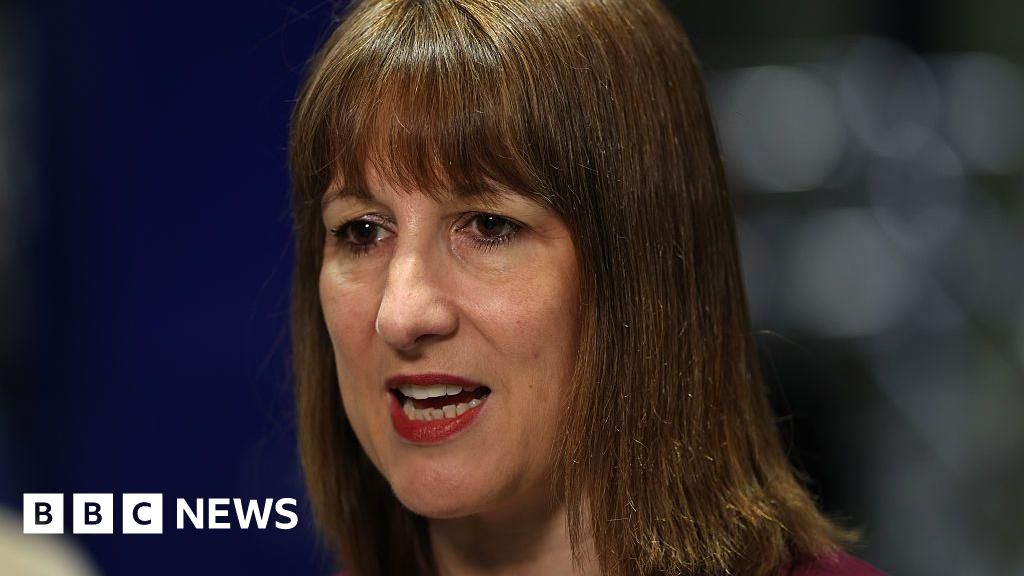ARTICLE AD BOX

Mark Stewart hopes the new deal will help him sell more hi-tech golf trolleys in Australia
By Dave Harvey
Business & Environment Correspondent, BBC West
Is the government's new Australian trade agreement a good deal?
It is the first deal struck since the UK left the EU, and will soon come into force.
Kemi Badenoch, the International Trade Secretary, described it as "fantastic", and said it would add £2.3bn to British exports.
But farmers and other critics have accused the government of "giving away our market too cheaply".
I've been to see two small firms who are weighing up the controversial trade agreement, to see if post-Brexit trading looks like a good deal.
Both are in the same county, Gloucestershire.
One sells hi-tech British engineering on the golf course, the other top-notch Cotswolds beef.
The engineer hopes to grow his Australian exports from £100,000 now to a million pounds a year.
The beef farmer is worried "this deal has been done in a rush, and we will all pay the price".
So what's the deal with what they're calling "The Deal Down Under"?
Driving sales: Mark Stewart is aiming for a million pound market in Australia
Mark Stewart works his magic on the golf course. Not with a driver or putter, but with his trolleys.
There's no need to push your clubs around with his technology.
Instead his trolley will follow golfers along the fairway wherever they go, like a robot caddy.
At around £1,500 each, the trolleys are not cheap.
But global golfers will pay for the latest hi-tech kit, and Mr Stewart sells them in 28 countries.
"Australia is great for us," he explains.
"It's a sporty, outdoors culture and they play golf year round. Plus they love the bragging rights of fancy kit!"
'Sell more'
Last year Stewart Golf's Australian sales topped £100,000. But each sale had a 5% import tariff and complex customs paperwork attached to it. When the new UK - Australia Trade Deal comes in, that will go.
Mr Stewart's Aussie importer can put that little extra cash into price cuts or extra marketing.
"Either way, we'll sell more products," he smiles.
"It's not dramatic, I'll be honest about it. We go from 5% to zero, so it's not a complete game changer but it's certainly a help."
On the third green, we meet international trade expert James Monk. His team at Business West advise small firms on the complexities of trading around the world, helping with customs forms and tariffs.
Is the new deal a big deal, I ask?
"It's not, no," he smiles, cutting through the politics.
"This is not the best trade deal ever. It is about a 5% saving. Now a company can see that degree of fluctuation at the moment on shipping costs or exchange rates, but it is one more thing making the West country's products more competitive over there."
"We will pay the price for this deal," says beef farmer David Barton
All trade deals cut both ways.
And while it will be easier to sell Gloucestershire golfing trolleys in Melbourne, it will also be simpler to ship sirloin steaks from Sydney to Southampton.
If you want to hear the downside on the Deal Down Under, just talk to a West country beef farmer.
David Barton is used to haggling for a deal, in livestock markets or the carpeted offices of a supermarket.
'Gave it away'
He can't believe what the UK government has given to Australian farmers.
"They basically just gave it away," he said.
"They gave access to our market without any negotiation."
His beef, as it were, is with the rules of Australian beef farming.
Huge so-called "feed lots" hold 50,000 cattle.
"The public wouldn't want it here, we wouldn't want it either".
Hormones are used to accelerate growth in beef cattle, antibiotics are used to prevent illness, not just treat sick cows.
Australian officials say the beef exported to the UK will not have hormones in it.
David Barton's cows are raised on grass without hormones, unlike Australian cattle.
Mr Barton asks: "How can we tell?"
"And anyway, the farm has already benefitted from the efficiencies of using hormones, so it remains unfair competition."
He is not alone in his concerns.
Minette Batters, who farms in Wiltshire and leads the National Farmers' Union, has spoken out too.
"This agreement simply opens up UK agricultural markets for Australian produce, whether or not produced to the same environmental and climate-friendly standards that are expected of UK farmers," she said.
Even the former Environment Secretary, George Eustice, has criticised the government's deal-making.
In a recent debate in Parliament he told MPs that "overall the UK gave away far too much for far too little in return".
In reply, the Trade Secretary Kemi Badenoch said she disagreed with everything he said.
"The deal isn't even in place yet and we're already talking it down," she told the international trade committee.
A fair dinkum deal?
Away from politics, cool heads are counting the steaks.
Australia is a long way away.
Only premium cuts will be shipped to the UK, but Britain spends a lot more than most countries on top quality beef, so it is a prized market.
Analysts at the Agriculture and Horticulture Development Board have worked out the impact of Sydney steaks on the British beef market. They estimate about 12,000 tonnes of Australian beef will be sold in the UK per year, an increase of over 260%.
But British beef farmers produce that much in a week, so the analysts estimate the impact on UK beef prices will be "negligible".
When I spoke to officials at the International Trade department, they pointed out that most Australian beef is sold closer to where it is produced.
A government spokesperson said: "70% of Australian beef and sheep exports last year went to the Asia-Pacific, and it is highly unlikely that large volumes of beef will be diverted to the UK."
In all, government economists estimate the new trade deal will add about £2.3bn to British exports. It sounds a fair sum, but actually represents less than 0.1% of UK GDP, the whole economy.
But as the first deal struck by the government since Brexit, it is being watched very closely for signs of future trade agreements. So even though the numbers are small, the stakes in this new deal are very large.
Follow BBC West on Facebook, Twitter and Instagram. Send your story ideas to: bristol@bbc.co.uk

 2 years ago
98
2 years ago
98








 English (US) ·
English (US) ·